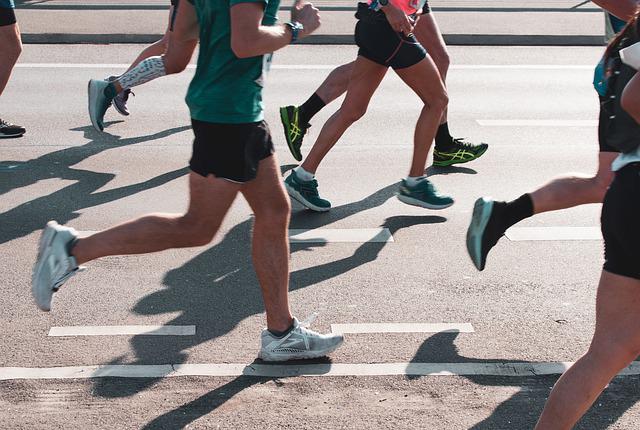Knee pain is a common and aggravating injury for many runners. In this week’s coaching call, learn how to assess and fix your knee pain through strength work, training strategies, and more!
Injuries are frustrating for runners of all levels, whether you’re just getting started or performing at the top of your sport. With so much “free” advice out there, it’s easy to get confused about the best way to handle an injury. While you should always consult a doctor for any serious pain, you can start with self-assessment tools to help decide whether resting or running is the best path forward.
This week’s episode features a behind-the-scenes coaching call with a Team Strength Running member, also named Jason. After a 10-year hiatus, Jason’s friend helped him get back into running, and he is currently preparing for an upcoming half-marathon.
Jason started running regularly again about 2 years ago, but has struggled with intermittent knee pain. The pain consistently occurs about halfway through each of his training cycles, but subsides during his down time in between harder training.
While he doesn’t have an exact diagnosis (i.e., patellofemoral pain syndrome), he has worked with a physical therapist to help relieve his pain.
The best strategies to assess and prevent knee pain
Knee pain, like most other running injuries, can respond to a variety of treatments. While some recovery options are passive – like massage or Graston or ART (Active Release Therapy)- others require more active involvement like physical therapy and strength training. Both can play a role in recovery, but being an active participant in your treatment plan is always beneficial!
While various treatment modalities can help you get back to running if you’re injured, proper training structure is essential to prevent injury in the first place. To get to the bottom of this nagging injury, Chris and I talk about his running background, training schedule, and the current pain he is experiencing. Our discussion touches on a variety of topics related to injury prevention, including:
- The differences between passive and active injury treatment
- The role of “sandwiching” in injury prevention
- Three questions to help you assess the severity of your pain
- What types of workouts are the hardest on your body
- The importance of base mileage during your off-season
- Why you need to run slow to run fast
This coaching call is full of practical advice you can apply to your own training, whether you’re injured or not. Enjoy my conversation with Jason!
Subscribe to the podcast in Apple Podcasts, Spotify, Stitcher, iHeartRadio, or Google Play.
Links & Resources from the Show:
- Learn more about our coaching programs, including Team Strength Running
- Find out more ways to manage knee pain
- Listen to the science behind running form, strength, and injury prevention strategies
- Let me help you prevent injury!
Thank you SOAR!
Thank you to one of our newest sponsors, SOAR! This London-based brand makes high-performance running apparel that I’ve been loving over the last 5 months. If you watch our YouTube videos, you’ll have seen me rocking a ridiculously short pair of blue 1” split leg shorts.
I have been inseparable from my 1” split leg SOAR shorts and my SOAR painter’s hat this summer. And for good reason: their gear is elite-level. They have technically-groundbreaking wet and cold weather gear that’s guided by a “function-first” mentality. The result is just amazing apparel that is comfortable, light, and just effective and helping you train.
SOAR is at the forefront of design innovation with ergonomic designs, cutting edge fabrics, and continuously updated clothing that just keeps getting better. See for yourself at SOAR Running and make sure you use the code SRUN15 to save 15% off your order until the end of October.
Thank you Elemental Labs!
A big thanks to Elemental Labs for their support of this episode! They make electrolyte drinks for athletes and low-carb folks with no sugar, artificial ingredients, or colors. And you can get a free sampler pack of 4 flavors and 8 individual packets when you pay $5 in shipping.
Elemental Labs’ products have some of the highest sodium concentrations that you can find. Anybody who runs a lot knows that sodium, as well as other electrolytes like magnesium and potassium, are essential to our performance and how we feel throughout the day.
The citrus flavor has quickly become my favorite. I’m drinking one a day now to help me get enough fluids in our dry Colorado air. It’s tasty and delicious and I find that I’m not peeing every 45 minutes throughout the day, which might be an indication I wasn’t eating enough sodium.
There’s now mounting evidence that higher sodium intake levels are not unhealthy – and athletes need substantially more than your typical sedentary person. Of course, ask your doctor if you’re worried. But for those athletes running outside in the heat, an electrolyte replacement makes a lot of sense. So check out Elemental Labs to try their new flavor or get a free sampler pack.
